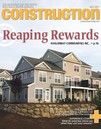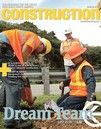Beware Of Sheep In Wolves’ Clothing
 BUYER BEWARE: Inexperienced valuators don’t come cheap. In fact, they may cost you your business. Case law is abundant with testimony of so-called valuation experts who expose themselves in the courtroom as nothing more than sheep in wolves’ clothing.
BUYER BEWARE: Inexperienced valuators don’t come cheap. In fact, they may cost you your business. Case law is abundant with testimony of so-called valuation experts who expose themselves in the courtroom as nothing more than sheep in wolves’ clothing.
They are not the smoking guns their clients hired them to be. In fact, under oath, some “experts” revealed they lack the core knowledge of the very topic they were hired to defend. Some may say it’s just plain bad luck the defendant hired a professional who “turned amateur” on the witness stand and others may say it’s just pure luck the knucklehead “turned pro” as the plaintiff’s star witness. Other cases indicate the professionals should have acknowledged their shortcomings and refused the testimony engagement altogether as accepting the assignment mimics malpractice more than useful service. Obviously, there are lessons to be learned from these cases.
LESSON #1 – Hire a credentialed business valuation expert.
In the case of Sanders v. Sanders (Ark. App. February 4, 2004), the Arkansas Court of Appeals accepted the lower court’s valuation opinion of the closely-held business over that of the wife’s expert. As the sole owner of the company, Mr. Sanders drew a salary of more than $250,000 in the year the couple separated. The trial court appointed a credentialed business valuation expert to value the business. Mrs. Sanders hired her own expert, a financial analyst. The court accepted the credentialed expert’s opinion of the company over the financial analyst. In short, the court agreed with the credentialed expert’s theory that although the business generated a great deal of cash and Mr. Sanders was paid approximately three percent more than that of a comparable executive, the business had no transferable goodwill. The court stated the business’ “actual value is not that great – except for (Mr.) Sanders.” It awarded the business to the husband as his separate property.
On appeal, the wife argued that the lower court failed to consider her expert’s opinion. The appellate court concluded, “We hold that the trial court did not commit reversible error when it chose to adopt (the credentialed expert’s) valuation. (She) is a certified business valuator, while (the financial analyst) has no training or expertise in that field. (The credentialed expert) testified at great length about her methodology, calculations and adjustments in arriving at her valuation of the business, and she provided a detailed report. She thoroughly explained the two methods that she used to arrive at her valuation. She also testified that (the financial analyst’s) adjustments and mathematical calculations were not correct.”
LESSON #2 – Don’t hire a real estate appraiser to do a business valuator’s work.
In May v. May (Minn. App. October 19, 2004), the Minnesota Court of Appeals affirmed the lower court’s decision that the real estate appraiser’s report was not supported by either clear documentary or testimonial evidence or by comprehensive findings. In 1992, the Mays, together with Mr. May’s parents, purchased a bait shop and accompanying real estate. The couple separated years later, and in anticipation of the trial proceedings, the Mays agreed to obtain an appraisal of their company. The appraiser hired was a real estate appraiser who, by the nature of his trade, focused almost exclusively on the tangible assets of the business. According to the case summary, the appraiser spent roughly an hour in the shop and spoke briefly with Mr. May’s father. In his report the appraiser stated that the business had a “going concern” value of zero ($0) and that the value of the fixtures and equipment was $6,000. The appraiser’s report provided no valuation for the company’s inventory. Additionally, Mr. May and Mrs. May gave testimony of their individual opinions of the equipment and inventory values.
Ultimately, the lower court found the real estate appraiser’s opinion report was incomplete. With the differing opinions of the Mays as well as a lack of complete evidence from the appraiser, the court concluded the expert’s report was not reliable. The court commented on the report’s departure from recognized appraisal processes and the limited amount of time the appraiser spent in the store. Based on the lack of complete information provided, the district court placed its own valuation of $25,000 on the business. On appeal, Mr. May lost his challenge regarding the credibility of Mrs. May’s claims and the lower court’s decision.
LESSON #3 – Don’t hire your corporate accountant and close personal friend to value your business.
In Minassian v. Minassian (MI App. December 23, 2003), the trial court appointed an appraiser to value the business, a wholesale jewelry business that was established during the marriage. The business also had a small retail operation. The appointed appraiser did not value the business; another appraiser from the same firm performed the valuation. This appraiser valued the business at $200,000 on an ‘as-is’ basis and at $400,000 on an adjusted basis; the wife relied on the latter opinion. However, the trial court rejected the appointed appraiser’s opinion because it determined he was inexperienced and unknowledgeable regarding standard practices within the jewelry industry. The appraiser also compared the wholesaler to retail jewelry operations, which was inappropriate based on the fact that the company’s primary operations are wholesale.
Mr. Minassian provided his own expert testimony from his corporate accountant, who was also his close personal friend. The husband’s expert concluded that the business had a value of $190,000, and the trial court accepted this opinion. Mrs. Minassian appealed, arguing that the lower court erred when it accepted the opinion of the husband’s expert. She asserted that the husband’s expert was biased as a result of his personal relationship with Mr. Minassian. The appellate court agreed and found the husband’s expert’s opinion was unreliable. Although the appellate court remanded the valuation back to trial court with instructions to appoint an independent, experienced valuation expert, it reconsidered the motion, as the value of the first appointed appraiser’s opinion and the husband’s expert were within $10,000 of each other. As such, it reaffirmed the lower court’s decision of $200,000.
LESSON #4 – Hire someone with “intellectual rigor.”
Fourthly, but certainly not the last lesson that can be learned from these cases is that which concerns Med Diversified, Inc., et. al. v. Addus Healthcare, Inc., et. al. (Bankr. F. D.N.Y. November 14, 2005). The plaintiff, Med Diversified, filed a motion challenging the qualifications of Addus Healthcare’s proposed expert witness asserting the witness’ purported expertise did not satisfy the established standard of the court for expert witnesses. The court rejected the defendant’s argument that the purported expert’s experience of 20-plus years as an accountant and as a liquidating agent and bankruptcy trustee was a satisfactory substitute for formal education and training in business valuation.
The defendant’s expert asserted his support staff were certified business valuators who participated in the report process. This answer did not satisfy the court; it said that “the person who signs the report has to testify (about) his report for all evidentiary purposes.” The court found the defendant’s expert testimony was unreliable because he did not use the same level of “intellectual rigor” (ouch!) that characterizes reliable experts in the field of business valuation. The court struck his testimony, saying it “showed a discernable measure of negligence in purportedly applying the alleged professional standards and techniques found in the published practical treatises.”





